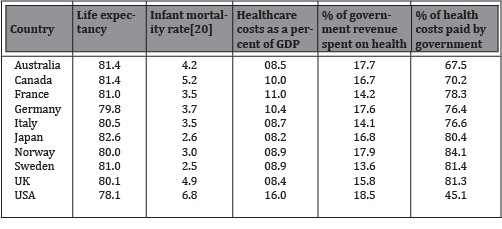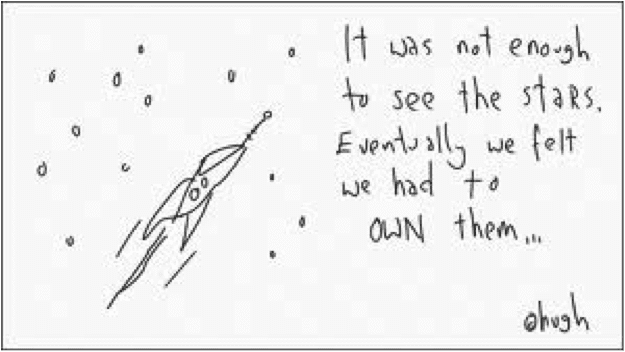The recent media attention garnered by Apple’s lack of social purpose and action has raised three questions for me.
• When is enough money, enough?
• When is the incongruence between our values and our actions enough for us to change our behaviour?
• When will social consciousness and responsibility balance with economic desire and action?
When is enough money, enough?
As of January 2012, Apple reported one of the most lucrative quarters of any corporation in history, with $13.06 billion in profits on $46.3 billion in sales. As senior executives stated, sales would have been even higher, if overseas factories were able to produce more. Furthermore, with Apple known to be the wealthiest corporation in the world, this financial picture is not likely to change any time soon. Or is it? These figures are mind-boggling for the average consumer, who as a member of the 99% is unlikely to earn $1 million in a lifetime. I am curious as to where these billion dollar profits go, aren’t you? My curiosity inspired me to consider several other questions?
• How much would it cost to provide free, or at the least universal, healthcare to everyone in Canada?
• . . . to everyone in the world?
• And why don’t we know the answers to these questions?
The World Health Organization in its World Health Report 2000 provided a ranking of health care systems around the world. Although the data is fraught with criticism from various sources, it suggests the beginning of greater transparency globally. Another study (see table below) of life expectancy versus health care spending (2007) in OECD (Organisation for Economic Co-operation and Development) countries sheds further light on our spending practices.
 Life Expectancy vs Health Care Spending in 2007 for OECD Countries: (data source)
Life Expectancy vs Health Care Spending in 2007 for OECD Countries: (data source)
If Apple or other billion dollar revenue generators are looking to enhance their corporate social responsibility and image, tackling the challenge of global universal healthcare and/or education reform would certainly move toward solving two of the world’s greatest needs.
When do incongruent values and actions change behaviour?
On Apple’s website, you will find the following statement:
Apple is committed to the highest standards of social responsibility across
our worldwide supply chain. We insist that all of our suppliers provide safe
working conditions, treat workers with dignity and respect, and use environ-
mentally responsible manufacturing processes. Our actions — from thorough
site audits to industry-leading training programs — demonstrate this commitment.
As of 2012, Apple is just beginning to act on this commitment to end unethical supplier practices. Media coverage as recent as January and February have exposed Apple’s reliance on Chinese suppliers who abuse their workforce in the following ways:
• underage labor at several factories,
• shift work extending to 14 or even 24 hours,
• work weeks extending to seven days/week,
• over-crowded dorm living with as many as 20 employees in a 3-room apartment,
• multiple suicides or suicide attempts,
• falsification of audit materials and bribery,
• hazardous, even explosive, working conditions resulting in deaths and severe injuries.
One could reasonably speculate that Apple has arrived late to the table when considering occupational MIT safety expert, Nicholas Ashford’s remarks, “It is gross negligence, after an explosion occurs, not to realize that every factory should be inspected. If it were terribly difficult to deal with aluminum dust, I would understand. But do you know how easy dust is to control? It’s called ventilation. We solved this problem over a century ago.”
I am not intending to hold Apple or its competitors (Dell, Hewlett-Packard, Motorola, Sony IBM, Lenovo, Nokia, Toshiba and others who also rely on unethical suppliers) wholly responsible for these injustices. As consumers of any number of their products, we also enable the tragic mistreatment of workers to continue. Given the “client-driven” culture and business models most global companies claim to pursue, both consumer and producer behaviour requires a radical reinvention and consciousness-raising.
As product users, we are beholden to press Apple and its competitors to uphold ethical and safe working conditions. One step forward may be Apple’s participation in the Washington-based Fair Labor Association (FLA), which sees itself as a “catalyst for positive change in workplace conditions”. As stated on its website, the FLA adds value to the individual efforts of companies or universities by offering:
• a collaborative process that allows industry, civil society organizations, and colleges and
universities to sit around the same table and discuss matters of common interest;• a system to perform due diligence on companies’ internal compliance programs through
unannounced independent external monitoring and verification;• innovative and sustainable strategies for improving compliance with labor standards;
• public access to all independent external monitoring reports via the FLA Web site; and
• a mechanism to address the most serious labor rights violations through our Third
Party Complaint process.
However, membership in the FLA is a reactionary, regulatory rather than proactive, preventative step. Increasing transparency of practices and educating corporations and workers on the benefits of optimizing all organizational systems — social, technological, business and environmental — will do much to alleviate the social and workplace injustices prevalent in the world. This leads me to my final, and related question.
When are social consciousness and responsibility going to balance with economic desires and actions?
No man is an island, entire of itself . . . any man’s death diminishes me,
because I am involved in mankind; and therefore never send to know for
whom the bell tolls; it tolls for thee. John Donne: Meditation XVII
As John Donne so aptly stated in 1624, in our humanity we are all connected. Similarly said but in more contemporary language, what we do to others, we do to ourselves. As more and more people come to hold this belief of oneness, we will arrive at a “tipping point” upon which the tradition of favouring economic gain over all else will give way to a more balanced approach including social and environmental considerations. I, for one, believe we are at that tipping point and although 2012 may not bring the end of the world, we could see the beginning of a new era — an era where social considerations including compassion and kindness lead our thoughts and actions.
What have we got to lose? Our shortsighted, crisis management strategies resulted in impulsive either/or thinking as demonstrated in a remark made by a current Apple executive, “You can either manufacture in comfortable, worker-friendly factories, or you can reinvent the product every year, and make it better and faster and cheaper, which requires factories that seem harsh by American standards. And right now, customers care more about a new iPhone than working conditions in China.” I ask you, is this who you want to be?
It’s our choice. We can choose compassion, kindness and prosperity. These are not mutually exclusive options.
What is your vision for healthy, happy work? What one step can you take to move toward that vision?





